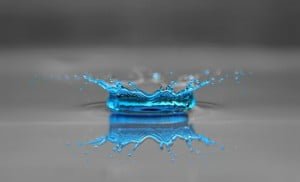[vc_row][vc_column width=”3/4″][vc_column_text]
To brush the teeth, to floss them or use interproximal brushes and to rinse the mouth. We are aware you already know which are the guidelines that have to be followed in order to have a correct oral hygiene. However, it is common doubts come out when it comes to choose the right accessories or how to use them, as is often the cause of mouthwash: how many times should be used? Which are the differences between them? which one should be chosen? Let’s clarify these uncertainties.
Types of mouthwashes
Mouthwash gains importance at cleaning our teeth because it helps to remove any dirt remainder we have not been able to previously eliminate. Although mouthwash may be daily used, some of them are strictly recommended for specific cases. Let’s see some of them:
- Antiseptics: these are intended, normally, for daily use. Beside fighting against the bacterial plaque, they are recommended for the small mouth infections caused by sores.
- Fluorides: specific products for the prevention of the caries and the dental calculus. However, their antiplaque effect is significantly weaker compared to other mouthwashes.
- With chlorhexidine: Specially intended for a periodontal disease and for preventive purposes before an oral surgery. The use of these mouthwashes is time-limited due to some of their contraindications (read below) so it is necessary to follow an odontologist’s instructions.
- With hexetidine: they help to accelerate the process of healing after a periodontal surgery. Due to the same reasons as indicated previously with mouthwashes with chlorhexidine, their time limit should not be extended.
- Whiteners: we add them to the list, but we caution that their efficacy is far from being proved.
Information to keep in mind
It is preferable that the chosen mouthwash (for daily use or as well as for a specific treatment) to be alcohol free, or otherwise, to have a minimal alcohol quantity.
On the other hand, it is important to choose the mouthwash which works best with our needs, so the best option is to ask our odontologist. In fact, the accessories composed by chlorhexidine contain chemical products that might wear down the enamel of the teeth or provoke the appearance of spots in some teeth.
In addition, it should be clear that using a mouthwash does not replace the effect of brushing the teeth. In case the use of the mouthwash is not prescribed for any specific treatment, it is possible to use both in the morning and at night. Whenever it is done, it is recommended to gargle for a minute.
[/vc_column_text][easy-social-share buttons=”facebook,twitter,linkedin,print,mail,whatsapp” style=”icon”][stm_post_comments][/vc_column][vc_column width=”1/4″][stm_sidebar sidebar=”812″][/vc_column][/vc_row]



